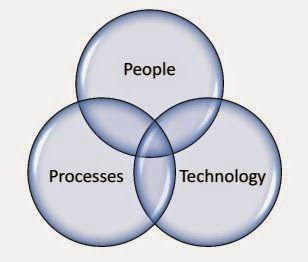Knowledge Management in the context of the RUFORUM Network (Part I)
 Successful KM is about people,
processes and technologies. There needs to be common and reliable information
and communication technology infrastructure to facilitate sharing. People who
know must be connected and the behaviors of asking, listening and sharing encouraged.
Processes to simplify sharing, validation and distillation are important for
the success of KM.
Successful KM is about people,
processes and technologies. There needs to be common and reliable information
and communication technology infrastructure to facilitate sharing. People who
know must be connected and the behaviors of asking, listening and sharing encouraged.
Processes to simplify sharing, validation and distillation are important for
the success of KM.
Why Knowledge Management is important for the RUFORUM Network
I was recently honored to be
invited by CTA (Technical Centre for Agricultural and Rural Cooperation) to
participate in a training workshop dubbed ‘Knowledge Management for Senior Management in Agriculture and Rural Development’ which was held from 10-12
November 2014 in Ede-Wageningen, The Netherlands. This provided me with a rare
opportunity to discuss and reflect on Knowledge Management concepts, methods,
tools, frameworks and models – and how they relate to the RUFORUM Network
Platform.
The term ‘Knowledge Management’
(KM) is understood differently by various people. Maybe this signifies the
complexity of the concept? Or this implies that KM is an evolving concept? It
could also be that the different KM actors perceive KM only in relation to
their distinct roles.There are over a hundred
published definitions of Knowledge Management (Dalkir, 2011).
Knowledge Management definitions
denote a very organizational or corporate orientation (KMWorld, 2012). According
to the Gartner Group (cited by KMWorld, 2012): "Knowledge Management is a
discipline that promotes an integrated approach to identifying, capturing,
evaluating, retrieving, and sharing all of an enterprise's information assets.
These assets may include databases, documents, policies, procedures, and
previously un-captured expertise and experience in individual workers."
What is required for KM to succeed?
 Successful KM is about people,
processes and technologies. There needs to be common and reliable information
and communication technology infrastructure to facilitate sharing. People who
know must be connected and the behaviors of asking, listening and sharing encouraged.
Processes to simplify sharing, validation and distillation are important for
the success of KM.
Successful KM is about people,
processes and technologies. There needs to be common and reliable information
and communication technology infrastructure to facilitate sharing. People who
know must be connected and the behaviors of asking, listening and sharing encouraged.
Processes to simplify sharing, validation and distillation are important for
the success of KM. Why Knowledge Management is important for the RUFORUM Network
Today’s economies are driven by
knowledge and information assets. KM is important to the RUFORUM Network for the
following reasons:
- A well implemented KM strategy will position us to produce knowledge products for advocacy to inform agriculture and education policy makers. This will hopefully change the face of agriculture in Africa through quality agricultural post-graduate training and agricultural research. A successful advocacy strategy could also result in African governments investing more in agricultural higher education.
- KM is key for helping Africa solve its developmental puzzle. We have opportunities to collate and disseminate knowledge that is unique to the African experiences. This knowledge is rare and difficult to locate in a properly packaged manner. If our knowledge is effectively managed and accessible we will be able to share and find solutions without reinventing existing solutions.
- KM will help the RUFORUM network to remain competitive and sustainable. KM could help us to identify sources of self-sustenance through our knowledge products that we could sell to our “customers”.
